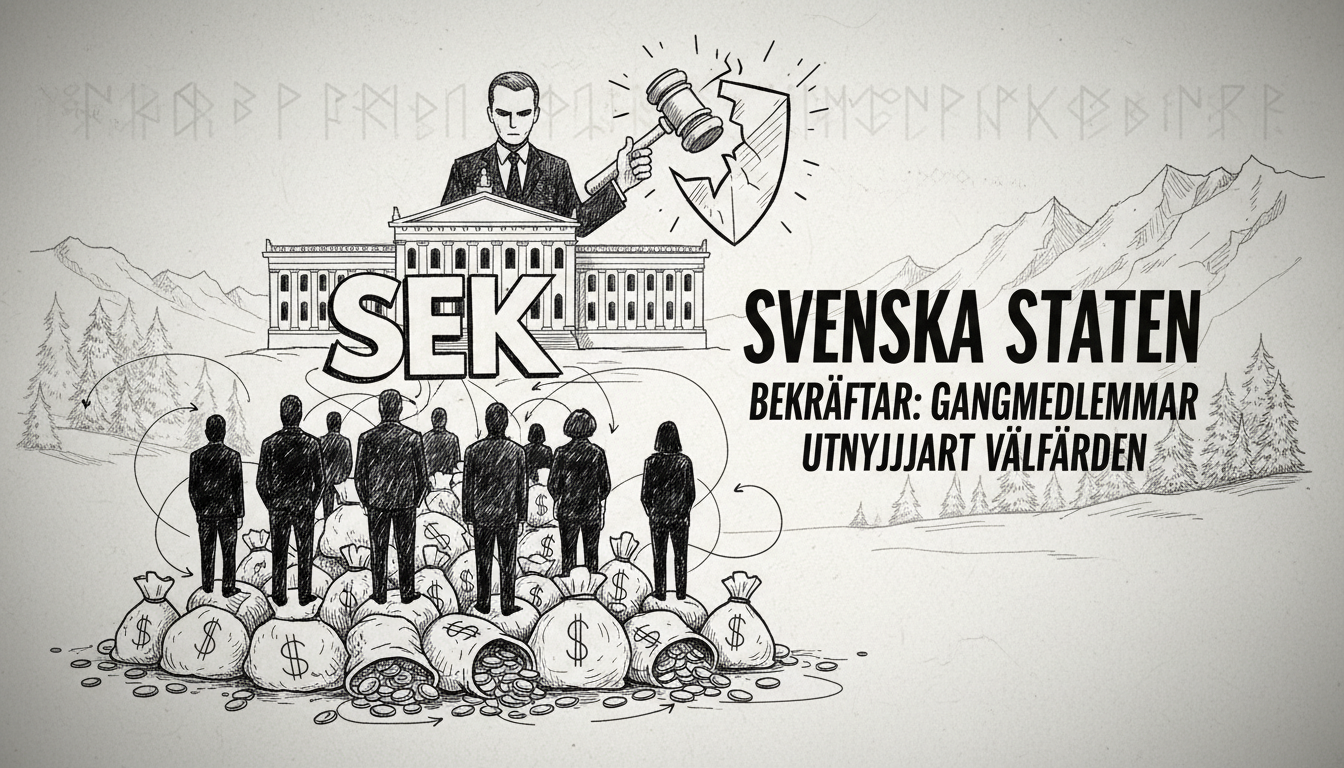The Swedish government faces mounting pressure as a new report reveals thousands of gang criminals receive state benefits. Approximately 4,000 individuals identified as active gang members have collected 3.6 billion kronor in recent years through sickness benefits, disability allowances, and activity support. These findings confirm long-standing suspicions about welfare system exploitation fueling organized crime.
Minister Anna Tenje expressed strong condemnation of the situation during a press briefing at Rosenbad. 'Our collective welfare funds should support those with genuine needs,' Tenje stated. 'Instead they fill criminals' pockets and strengthen gang operations. This confirms patterns we have tracked for years.' The minister emphasized the government's determination to disrupt gang financing channels.
Authorities identified several fraudulent methods including falsified medical certificates and sham separations. Couples formally separate on paper while continuing cohabitation to qualify for additional benefits. The Swedish Parliament recently approved new legislation taking effect in December that facilitates information sharing between agencies. This confidential data exchange represents a key tool in combating welfare fraud.
Tenje outlined additional measures including stricter sanction systems and benefit restrictions for repeat offenders. 'We must cut off this flow of taxpayer money to criminal networks,' the minister declared. Official estimates indicate between 15 and 20 billion kronor are incorrectly paid through welfare systems annually. Approximately half involves deliberate benefit fraud according to government assessments.
Police intelligence reports identify 67,500 individuals within Swedish gang environments. Among these, 17,500 are considered actively engaged in criminal operations while others maintain various gang connections. The scale of welfare diversion threatens system legitimacy according to government officials. 'Hardworking citizens need confidence that funds reach appropriate recipients,' Tenje emphasized in her statement.
The Riksdag building has hosted intense debates about welfare reform throughout the current parliamentary session. Previous governments struggled to balance social protection with fraud prevention. Current Stockholm politics reflect growing public concern about gang-related violence and its connection to broader systemic vulnerabilities. These revelations arrive during heightened focus on law enforcement capabilities and social program integrity.
Government policy in Sweden now prioritizes closing these financial loopholes while maintaining support for legitimate claimants. The forthcoming legislative changes aim to strengthen administrative coordination between social insurance agencies and law enforcement. Ministry officials acknowledge the challenge of preventing abuse without creating excessive bureaucracy for honest applicants. This balancing act remains central to welfare policy discussions across government districts.
International observers note Sweden's generous social safety net presents particular challenges in combating organized crime infiltration. The Nordic model's reliance on high trust and minimal verification creates vulnerabilities exploited by determined criminal groups. These findings likely signal broader reforms to Sweden's approach to both social welfare and organized crime prevention.

